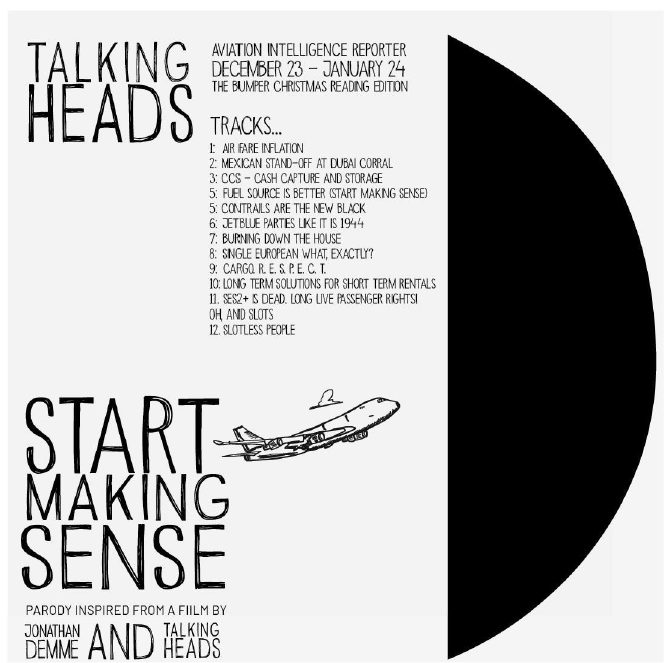Aviation Intelligence Reporter December 2023-January 2024.
To read the full report please login first.
Do you want to become a member?
Friends,
Another year is almost done, so it is time to put on the huge suit, get out the dancing shoes and watch the recently re-released, remastered best concert film ever. It is time to Stop Making Sense, with Talking Heads. Or to start making sense, with our own version of many of the great tracks in that film.
We look at the recent CAAF in Dubai – that diverts us into the desserts used as scenery for Western films, an honourable genre – and at the only thing the carbon capture and storage systems are capable of capturing. We also look at the imbroglio at Schiphol, and what it means, deep down. Everyone has now given up on SES2+, so it is time to call it what it is…
Next, we turn our attention to the cargo side of aviation. Always the poor cousin but more important than we are normally prepared to give it credit for. There has also been a breakthrough in the regulating what we call short term rentals, like AirBnB. That is good news for cities as well as the hoteliers. Finally, we look at what the next presidency is suggesting it will look at in the next six months. If SES2+ is no longer the centre of attention, we might be able to focus on other things, perhaps.
After another busy year, I hope that you can find some peace and relaxing time over the Christmas break. I cannot thank you enough for your support and encouragement this year, and for which I am very grateful. Before you know it, we will be back into the trenches, but let me on, behalf of all of us here, wish you a very happy Christmas and all the very best for the new year.
Regards
Andrew
